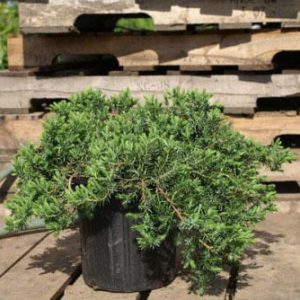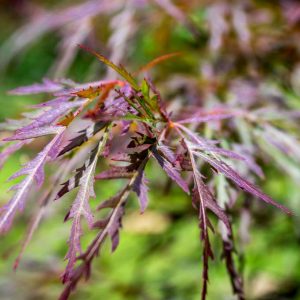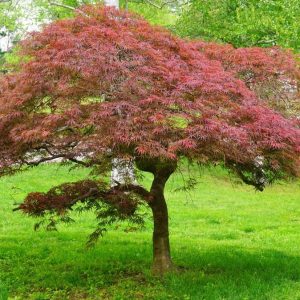Description
Enkianthus –
There are about 10 species of mainly deciduous shrubs, rarely evergreen, occasionally trees, in this genus. They occur in scrub and woodland from the Himalayas to Japan. They are grown for their terminal umbels or corymb like racemes of white, pink, or red, bell or urn shaped flowers, usually 1/4-3/8″ long, borne from mid spring to early summer, and for their simple, lance shaped to elliptic-obovate, usually toothed, alternate leaves, which turn various shades of orange and red in autumn. These plants are best grown in an open site in a woodland garden.
Grow in humus rich, moist but well drained, acidic to neutral soil in full sun or partial shade.
E. campanulatus – Redvein Enkianthus – This slow growing spreading, tree like, deciduous shrub from Southern China and Japan grows 8-15′ feet tall and wide. It produces whorled branches and obovate-elliptic toothed, dull green, pointed leaves, to 2 ½” long, clustered at the tips of the shoots and turning gold, orange-yellow to red in autumn. In late spring and early summer it bears drooping, corymb like racemes of 5-15 bell shaped, creamy yellow flowers, heavily veined pink to red.
Zones 5-8





